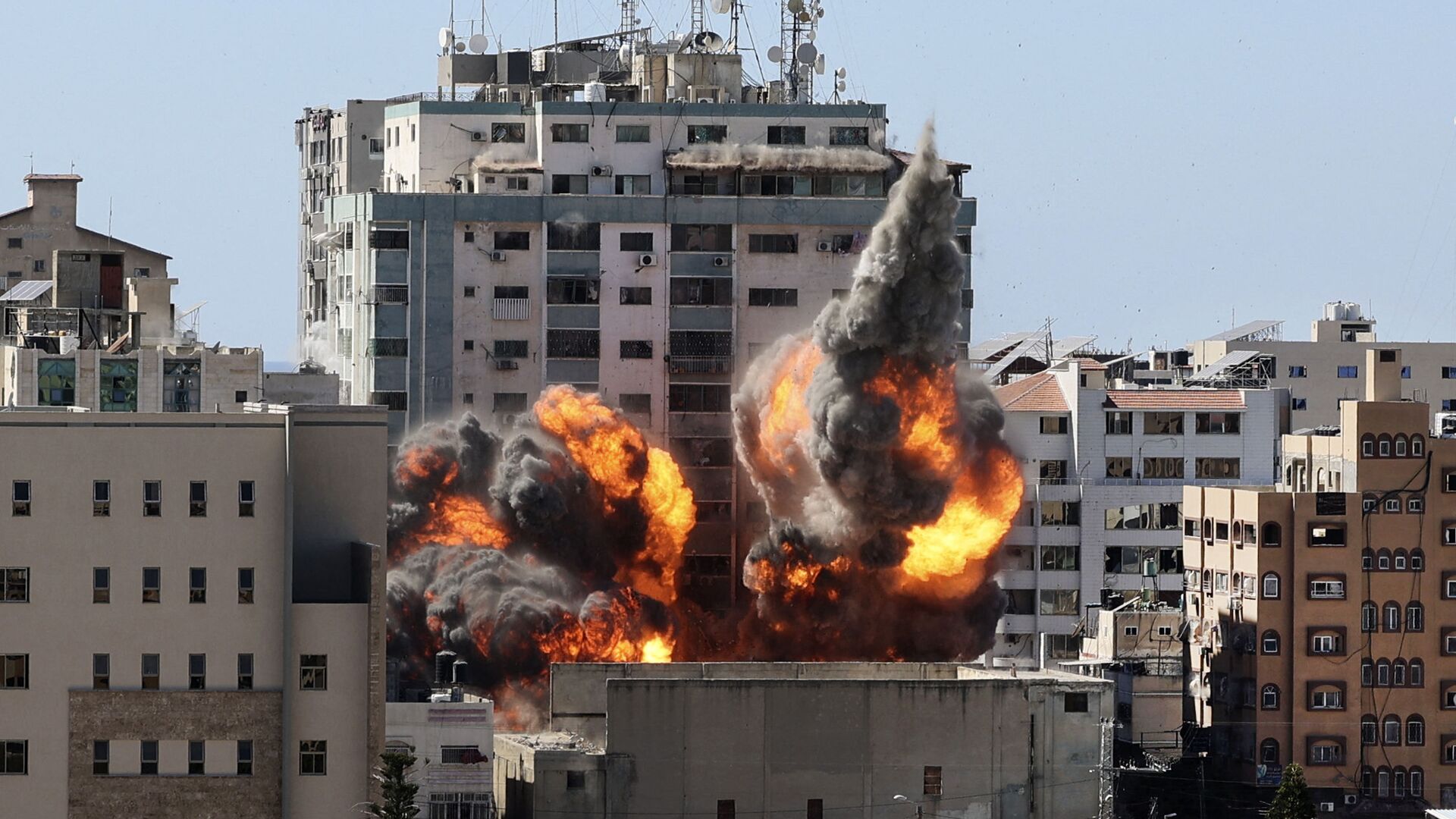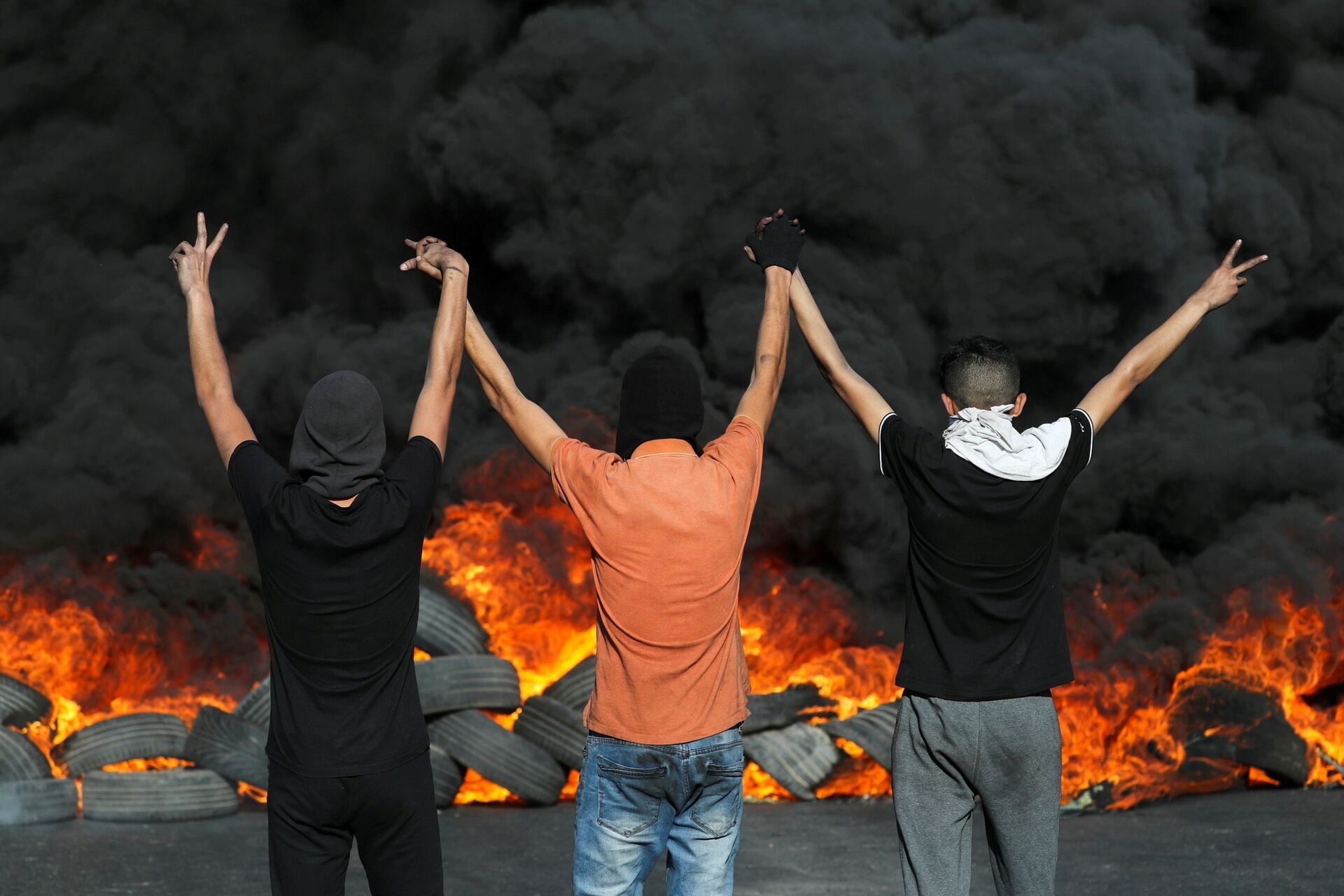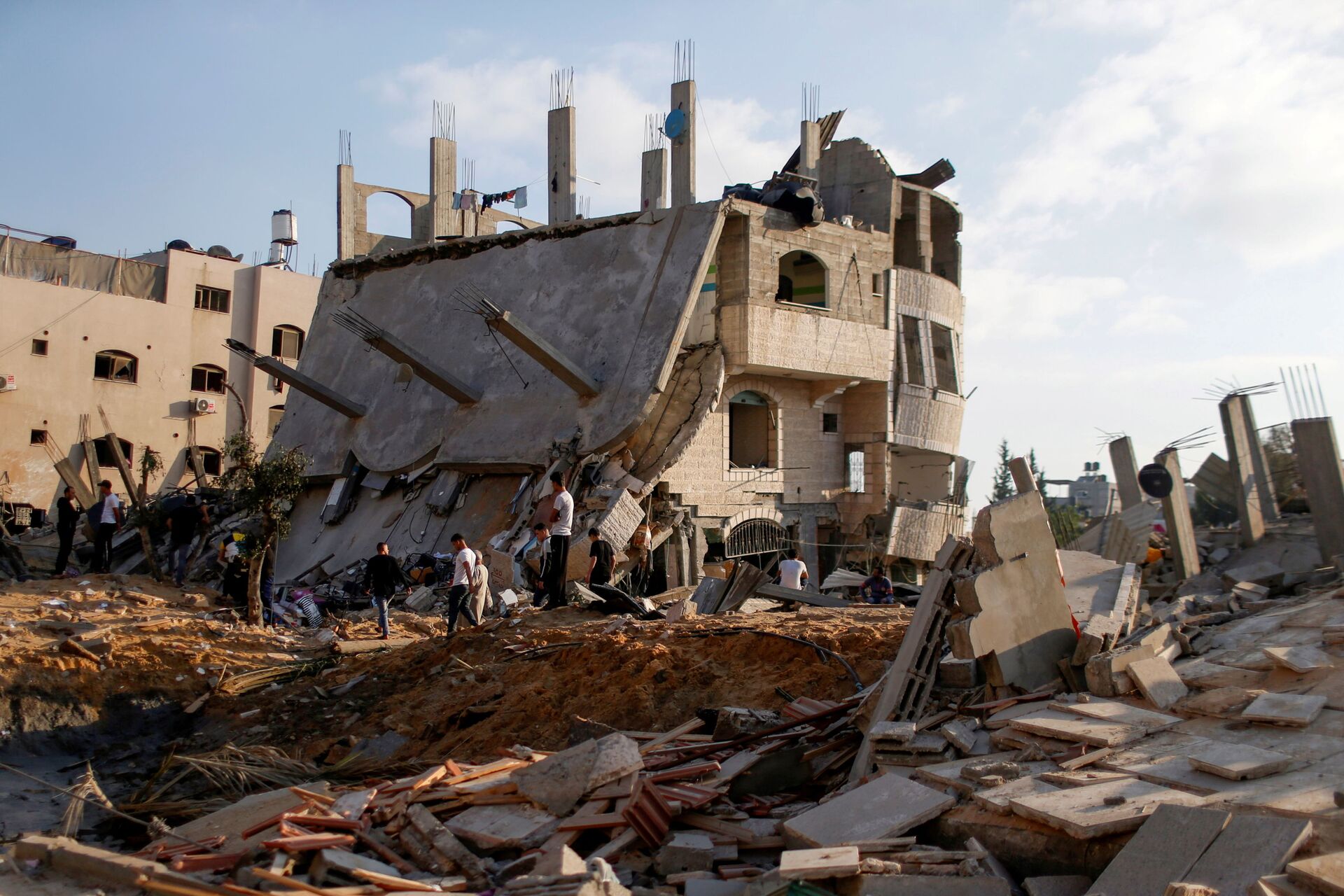https://sputnikglobe.com/20220106/west-might-not-like-house-demolitions-but-israel-doesnt-have-any-other-options-1092054849.html
West Might Not Like House Demolitions, But Israel Doesn't Have Any Other Options
West Might Not Like House Demolitions, But Israel Doesn't Have Any Other Options
Sputnik International
It is difficult to estimate how many homes have been partially or fully destroyed by the IDF since 1967, when Israel took control over the West Bank. But according to estimates, 2021 was one of the most difficult years for the Palestinians, with 199 devastated residential structures.
2022-01-06T06:42+0000
2022-01-06T06:42+0000
2023-01-15T17:25+0000
west bank
middle east
demolition
palestinians
home demolition
israel
https://cdn1.img.sputnikglobe.com/img/07e5/05/0f/1082900687_0:75:2251:1341_1920x0_80_0_0_cc01bf53bd11f01cbc71250de5b752b8.jpg
A month and a half after Fadi Abu Shkhaydam, a Palestinian man from East Jerusalem's Shuafat refugee camp, opened fire in the disputed city, killing one and injuring four others, the IDF has issued a demolition order for his home.Nothing NewThe move has already prompted waves of criticism from various human rights groups, citing collective punishment. But Oded Mudrik, a retired judge, who has dealt with many cases of house demolitions, says this practice is "nothing new".That policy goes back to the British Mandate. Those governing what was then known as Palestine used that measure against Jewish extremists and against Palestinians to quell their uprising against western forces.In 1948, when Israel was created, the laws of the British Mandate remained intact, and in 1967, when the Jewish state captured the West Bank from Jordan, it started to apply that policy against the Palestinians in the area.Over the years, Israel has destroyed hundreds of Palestinian homes. According to B'Tselem, an NGO that documents Israeli actions in the territories, 2019 saw the demolition of 104 homes. In 2020 that number was 151 and a year later it jumped to 199 residential structures.Moral Issue?Some of these homes were destroyed because of their illegal construction. Others - due to one of their dweller's involvement in terrorist activity.Yet, those claims have been previously put to the test. Israel's liberal circles and human rights groups believe it is immoral to practice collective punishment against those who have not been involved in a crime.Several judges and military experts have echoed those concerns and said the measure does more harm than good, primarily because it evokes hatred towards Israel and encourages more acts of terror.Others have claimed the policy violates the prohibition of the destruction of private property, whereas there are also those who point to the discriminatory nature of the measure that is always directed at the Palestinians, never at Jewish extremists.Alternative SolutionsThis is why the policy was suspended in 2005, but three years down the line it was resumed partially due to public pressure and partially because of a wave of terrorist activity emanating from East Jerusalem. In 2014, it was fully reinstated but Israel's High Court of Justice reiterated that the measure could only be used in extreme circumstances and proportionately.International law experts argue that Israel does. The Geneva Convention strictly forbids the destruction of property except in instances where "such destruction rendered absolutely necessary by military operations".The law encourages the incarceration of the culprit rather than a collective punishment that hurts ordinary civilians. But for many Israelis, the imprisonment of Palestinians accused of terrorism is simply not enough.The main reason for this is the reports about their rather convenient conditions or about their bloated salaries that at times can reach $4,000 a month.Many are also frustrated that some of those culprits could potentially be released in a swap deal like in 2011 when Israeli soldier Gilad Shalit was exchanged for more than a thousand Palestinian inmates, many of whom have murdered Israelis.
west bank
israel
Sputnik International
feedback@sputniknews.com
+74956456601
MIA „Rosiya Segodnya“
2022
News
en_EN
Sputnik International
feedback@sputniknews.com
+74956456601
MIA „Rosiya Segodnya“
Sputnik International
feedback@sputniknews.com
+74956456601
MIA „Rosiya Segodnya“
israel, palestinians, israeli-palestinian conflict, west bank, jerusalem, house deomolitions
israel, palestinians, israeli-palestinian conflict, west bank, jerusalem, house deomolitions
West Might Not Like House Demolitions, But Israel Doesn't Have Any Other Options
06:42 GMT 06.01.2022 (Updated: 17:25 GMT 15.01.2023) It is difficult to estimate how many homes have been partially or fully destroyed by the IDF since 1967, when Israel took control over the West Bank. But according to estimates, 2021 was one of the most difficult years for the Palestinians, with 199 devastated residential structures.
A month and a half after Fadi Abu Shkhaydam, a Palestinian man from East Jerusalem's Shuafat refugee camp, opened fire in the disputed city, killing one and injuring four others, the IDF has issued a demolition order for his home.
The move has already prompted waves of criticism from various human rights groups, citing collective punishment. But Oded Mudrik, a retired judge, who has dealt with many cases of house demolitions, says this practice is "nothing new".
That policy goes back to the British Mandate. Those governing what was then known as Palestine used that measure against Jewish extremists and against Palestinians
to quell their uprising against western forces.In 1948, when Israel was created, the laws of the British Mandate remained intact, and in 1967, when the Jewish state captured the West Bank from Jordan, it started to apply that policy against the Palestinians in the area.
Over the years, Israel has destroyed hundreds of Palestinian homes. According to
B'Tselem, an NGO that documents Israeli actions in the territories, 2019 saw the demolition of 104 homes. In 2020 that number was 151 and a year later it jumped to 199 residential structures.
Some of these homes were destroyed because of their illegal construction. Others - due to one of their dweller's involvement in terrorist activity.
"I believe it is morally correct to enforce it", says Mudrik. "Terrorists are not afraid to die but they do care about their families. And that's why if they know that the house of their family will be destroyed, they might have second thoughts. It is a serious deterrent", he added.
Yet, those claims have been previously put to the test. Israel's liberal circles and human rights groups believe it is immoral to practice collective punishment against those who have not been involved in a crime.
Several judges and military experts have echoed those concerns and said the measure does more harm than good, primarily because it evokes hatred towards Israel and encourages more acts of terror.
Others have claimed the policy violates the
prohibition of the destruction of private property, whereas there are also those who point to the discriminatory nature of the measure that is always directed at the Palestinians, never at Jewish extremists.
This is why the policy was suspended in 2005, but three years down the line it was resumed partially due to public pressure and partially because of a
wave of terrorist activity emanating from East Jerusalem. In 2014, it was fully reinstated but Israel's High Court of Justice reiterated that the measure could only be used in extreme circumstances and proportionately.
"Before deciding to demolish a house, the military commander needs to find an alternative punishment. There have been cases when only part of the house was taken down. At other times, the house was not destroyed but the family of the terrorist was prevented from living there. The truth is that Israel doesn't have any other choice".
International law experts argue that Israel does. The
Geneva Convention strictly forbids the destruction of property except in instances where "such destruction rendered absolutely necessary by military operations".
The law encourages the incarceration of the culprit rather than a collective punishment that hurts ordinary civilians. But for many Israelis, the
imprisonment of Palestinians accused of terrorism is simply not enough.
The main reason for this is the reports about their rather convenient conditions or about their bloated salaries that at times can reach $4,000 a month.
Many are also frustrated that some of those culprits could potentially be released in a swap deal like in 2011 when Israeli soldier Gilad Shalit was exchanged for more than a thousand Palestinian inmates, many of whom have murdered Israelis.
"In a way, this method gives some sort of satisfaction to the suffering family. And when you need to choose between saving lives or succumbing to the international pressure that's applied on Israel when it enacts this policy, the scale tilts towards the former", summed up Mudrik.





